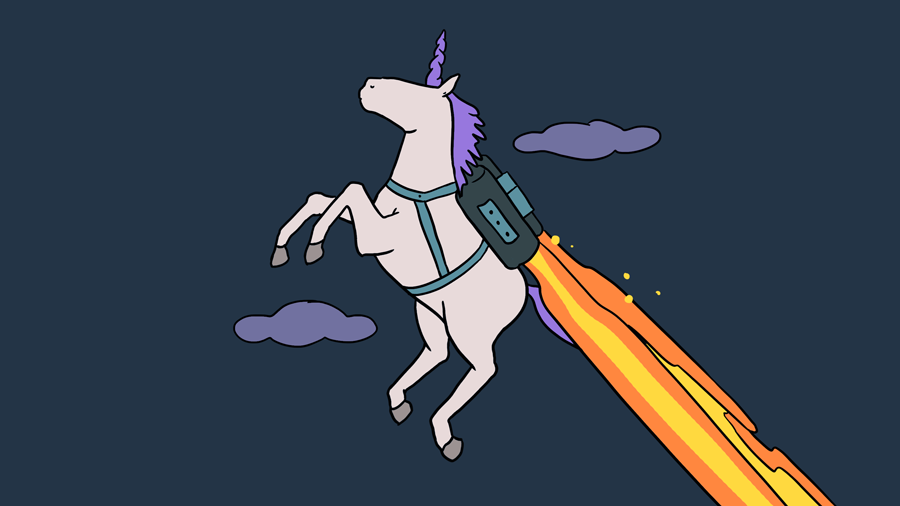Today, payments infrastructure provider Plaid shared some details of a supergiant $250 million haul it took in for its Series C round. Led by veteran Silicon Valley investor Mary Meeker on behalf of Kleiner Perkins, the deal values Plaid at $2.65 billion, post-money, according to various media reports.
Rumors about the funding began swirling in late October, as our EIC Alex Wilhelm reported, and Plaid has raised more than originally expected at a slightly less favorable valuation. A Bloomberg report from the time indicated Plaid could raise $200 million at a $3 billion valuation.
Follow Crunchbase News on Twitter
Andreessen Horowitz and Index Ventures participated in the round as new investors in the San Francisco-based company. Prior investors Goldman Sachs, NEA, and Spark Capital followed-on their prior investments in this round. Of all the capital Plaid has raised to date—$309.3 million, according to Crunchbase data—the bulk of it was raised in this round.
As part of the transaction, Mary Meeker will join Plaid’s board. Meeker in September abruptly announced she was leaving Kleiner Perkins, a firm she helped lead. The Plaid funding is reportedly her last as a partner with the firm before she begins raising funds for a new firm she is said to be leading, according to Bloomberg. The new firm will likely be a later-stage investment practice, the most lucrative segment of the venture market right now.
“Plaid has built an important underpinning for financial services on the web and mobile,” Meeker said in a written statement. “Plaid allows businesses to rapidly launch innovative products, drive growth and enhance consumer satisfaction. We are excited about the evolution and potential ahead.”
In a blog posted today, the co-founders of Plaid (Zach Perret & William Hockey) outlined details about the round, noting that they plan to do some hiring and expand operations.

“We’re focused on shipping and scaling products that will both serve the growth and scale of these customers, and become the foundation for fintech for decades to come,” they wrote.
Plaid plays a key part in the rather complicated stack of technologies behind the modern banking and payments system. Its suite of APIs lets banks, credit card companies, investment platforms, and other financial institutions connect to your bank account. This allows companies like Coinbase, Venmo, Betterment, and even old-school institutions like Fannie Mae to verify and authenticate your identity, verify your assets and income, and access things like account balances and transaction histories. The goal, it seems, is to build a single API layer over banks’ own systems. Plaid claims it currently powers thousands of applications in the US and Canada, and that as of 2018, 25 percent of people in the US with bank accounts have used Plaid at some point, up from 13 percent in 2017.
The company has 175 full-time employees across three offices, including its headquarters in San Francisco, as well as New York and Salt Lake City.
In his own blog also posted today, Index Ventures’ Mark Goldberg wrote that over the past decade, technology companies have become “the new financial institutions” as people use a variety of apps for different functions such as budgeting and investing. Plaid plays into all of this by “becoming the technology that ties this fragmented financial ecosystem together, according to Goldberg.
“As more innovative apps come online, the volume of connections between banks and technology companies will grow exponentially,” he added. “It’s hard to say which finance apps will be on the home screen of consumers’ phones 10 years from now, but we’re confident that they will be powered by Plaid…It’s incredibly powerful and ubiquitous.”
The fintech space has seen some impressive exits in recent years. For example, Chicago-based Braintree, which operates a payments platform for online and mobile businesses, was acquired by PayPal for $800 million in 2013. Paypal also bought Hyperwallet, which helps companies to make online worker payments, for $400 million in June.
Illustration: Li-Anne Dias

Stay up to date with recent funding rounds, acquisitions, and more with the Crunchbase Daily.





![Illustration of conversation bubbles. [Dom Guzman]](https://news.crunchbase.com/wp-content/uploads/Talk-470x352.jpg)





67.1K Followers